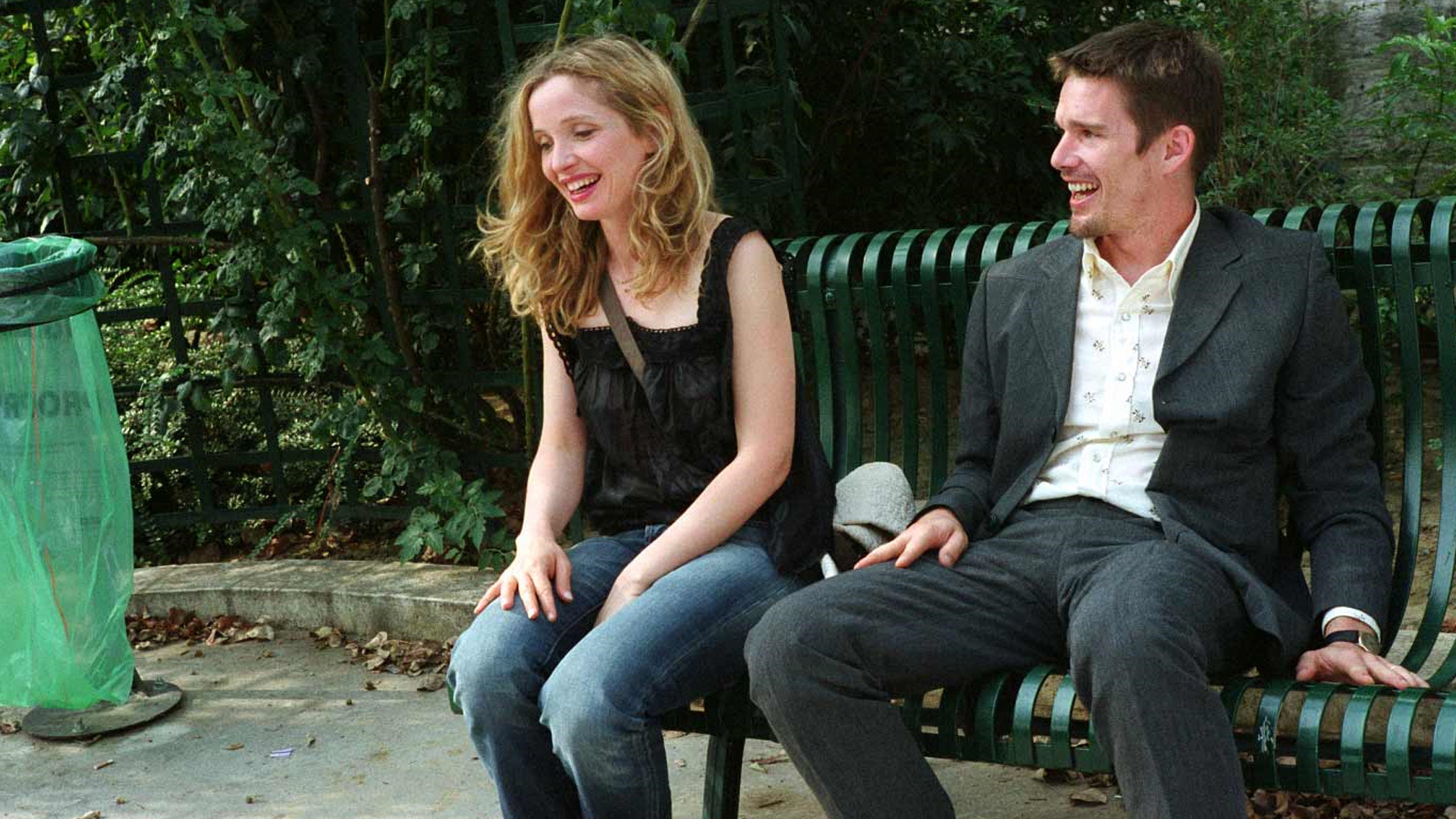Before Sunset drops a tiny bit of darkness into the magic, transforming it into something bigger than its initial scope. Jesse and Celine’s first meeting in Vienna was nothing short of the magic of love at first sight. Before Sunset explores the ramifications of something that special. By reshaping the meet cute though the looking-glass of time itself, Before Sunset maintains the true-to-life realism of love in your 30s after the magical realism of early 20’s romance in Before Sunrise.
9 years after the night of his life, Jesse (Ethan Hawke) has been so influenced by his time with Celine (Julie Delpy) that he has written a best-selling novel about that experience. On his last stop in Paris, Celine appears. With just over an hour before his flight, Jesse spends that time with Celine in hopes to rediscover the connection he had with her as well as ask her many questions about life, love, and environmental policy.
Vienna got the magical treatment in Before Sunrise. Before Sunset chooses Paris, a city built on magic as its backdrop. Instead of choosing obvious touristy sites, Jesse and Celine take a more practical approach: their conversation takes them through a cafe, a riverwalk/boat, and a garden. The local backdrop gives Before Sunset (like its predecessor) a firm grounding in reality. There are no chases through the Louvre or the Eiffel Tower here: the conversations are exciting enough.
Director Richard Linklater, Julie Delpy, and Ethan Hawke were rewarded with an Oscar Nomination for their flowing lyrical interplay. Very quickly, they reestablish the connection forged 9 years earlier. However, these are not the same Jesse and Celine that met 9 years earlier. Linklater does a great job evolving the characters from their original selves, something sequels have a hard time doing. Both are a little more practical and jaded since it is revealed early on that they did not meet up as intended at the end of Before Sunrise. The ill-fated miss has had lasting effects on both of them and leads to a breathtaking final 30 minutes where the dialogue takes an emotionally honest and raw tonal shift that can be predicted from the dialogue previous. These shifts elevate Before Sunset from a nice sequel with flowery dialogue to an honest discussion about lost love and responsibilities vs. emotional honesty. Before Sunset evolves from character specific to character ubiquitous: everyone who connects with someone else has to approach these feelings at one time or another.
Hawke and Delpy clearly have inserted some autobiographical context into their proceedings, making Jesse and Celine a mixture of character and actor alike. The two have such an unforced natural chemistry that is rare in most romantic movies; it is critical that the audience be drawn into this pair to root for them to allow Before Sunset to succeed. After the first few minutes together, it becomes evident these two share one of those rare connections that are hard to describe but wonderful to behold. For this film, Hawke and Delpy add some world-weariness to their characters that bubbles to the surface in the final act that feels honest and relatable to anyone frustrated by the complicated feelings that love creates.
Before Sunset, like Before Sunrise before it, makes tangible the intangible. Connections, fate, responsiblity, and love are all dissected and articulated like a beautiful flowery pontification between two intelligent people. There was a 9 year difference between Before Sunrise and Before Sunset. If it takes Linklater, Hawke, and Delpy 9 years to develop a film experience like Before Sunset, I will gladly wait the near decade to find out what happens next for Jesse and Celine.

